Keynote Speaker
-
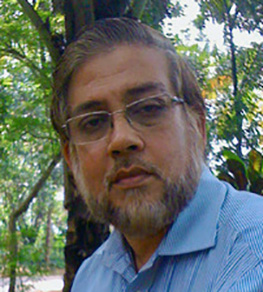
Raghavendra Gadagkar
Indian Institute of Science, Bangalore
Raghavendra Gadagkar is the Year of Science Chair Professor at the Indian Institute of Sciences (IISc). He received his PhD from the IISc, Bangalore, where he has also enjoyed a long career as a Professor. He and his team of passionate students have conducted empirical and theoretical, field and laboratory research for over 40 years to understand the social biology of the Indian paper wasp Ropalidia marginata. His publications include the books Survival Strategies, The Social Biology of Ropalidia marginata, and Experiments in Animal Behaviour: Cutting-Edge Research at Trifling Cost. He is an International Member of the National Academy of Sciences, USA and the 2021 Distinguished Animal Behaviorist of the Animal Behavior Society.
ces.iisc.ernet.in/hpg/ragh
Plenary Speakers
-
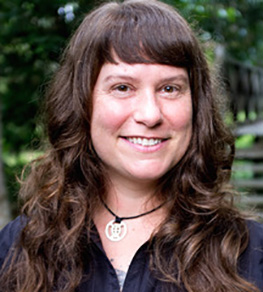
Corrie Moreau
Cornell University
Corrie Moreau is the Martha N. and John C. Moser Professor of Arthropod Biosystematics and Biodiversity at Cornell University. She received a PhD from Harvard University and was a Miller Postdoctoral Fellow at the University of California, Berkeley. Her research focuses on the evolution and diversification of ants and their symbiotic bacteria. She couples field-based research with molecular and genomic tools to address the origin of species and how co-evolved systems benefit both partners. She pursues questions on the role of biogeography, trait evolution, and symbiosis in shaping macroevolutionary processes to better understand broad-scale evolutionary patterns of life. In addition, she is engaged with efforts to promote science communication and increase diversity in the sciences.
www.moreaulab.entomology.cornell.edu/people/corrie-moreau -

Geraldine Wright
University of Oxford
Geraldine Wright is the Hope Professor of Entomology at the University of Oxford. She originally studied botany at the University of Wyoming and received a DPhil in Zoology from the University of Oxford in 1998. Her lab investigates how bees detect, learn about, and regulate their intake of nutrients and secondary metabolites. Their work has shown that compounds like caffeine found in floral nectar and pollen enhance the learning and memory performance of honeybees. Her lab has also quantified the contribution of nutrients found in pollen to mechanisms of feeding in bees.
www.zoo.ox.ac.uk/wright-lab-oxford-bee-laboratory -
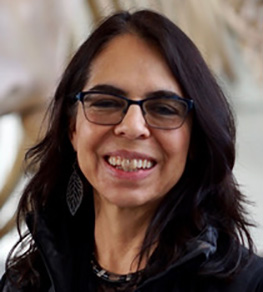
Leticia Aviles
University of British Columbia
Leticia Avilés is a Professor at the Department of Zoology and the Biodiversity Research Centre at the University of British Columbia. Originally from Ecuador, she received her PhD from Harvard University. Drawing inspiration from social spiders, a phylogenetically diverse set of species that have converged in evolving cooperative behavior and highly subdivided population structures, her research addresses the causes and consequences of social evolution. Projects include the ecology and biogeography of social evolution; evolution in metapopulations; short- and long-term consequences of inbreeding; and the role of multilevel selection in evolution. Along with her students and postdocs, she uses a range of tools including fieldwork in temperate and tropical areas, computer simulation and analytical modelling, and behavioral and molecular techniques.
blogs.ubc.ca/avileslab -
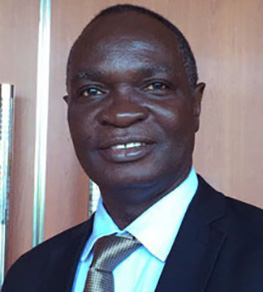
Peter Kofi Kwapong
University of Cape Coast, Ghana
Peter Kofi Kwapong is a Professor of Entomology at the University of Cape Coast. He received his PhD from the University of Reading in 1998. He has published widely on pollination ecology, bee biology and ecology, and he is a founding member of the African Pollinator Initiative and a member of the Global Pollinator Initiative. He is also the Director of the International Stingless Bee Center, which he founded in 2005 to serve as a sanctuary for culturing stingless bees. His honors include the British Council Award for the Most Effective Ambassador of UK Education in 2012 and the University of Cape Coast @50 Award for innovation and creativity. He was the national coordinator of the GEF/UNEP/FAO Global Pollination Project in Ghana.
directory.ucc.edu.gh/p/peter-kofi-kwapong -

Sylvia Cremer
The Institute of Science and Technology, Austria
Sylvia Cremer is a Professor at the Institute of Science and Technology Austria. She received her PhD at the University of Regensburg and was a postdoctoral scientist at the University of Copenhagen and a Junior Fellow at the Institute of Advanced Studies in Berlin. She studies individual and social immunity in insect colonies, in particular the cooperative disease defense emerging in superorganismal ant societies. Her work combines behavioral and chemical ecology with evolutionary immunology, to understand common principles of the interplay of individual and collective defenses across biological levels.
ist.ac.at/en/research/cremer-group -
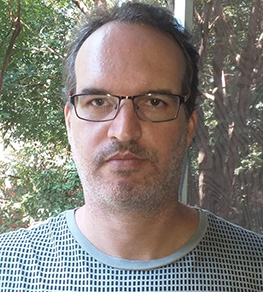
Fabio Santos do Nascimento
Universidade de São Paulo, Ribeirão Preto, Brazil
Fabio Nascimento is a Professor of Behavioral Ecology at Universidade de São Paulo, Ribeirão Preto Campus. He received his PhD at Universidade de São Paulo in 2003 and was a postdoctoral fellow at the University of Sheffield (2005) and Boston University (2013). He is interested in caste conflict, chemical communication, and reproduction in social insects. His main focus is understanding how social behavior evolved from simple to complex societies.
sites.usp.br/biologia/pagina-1/fabio/